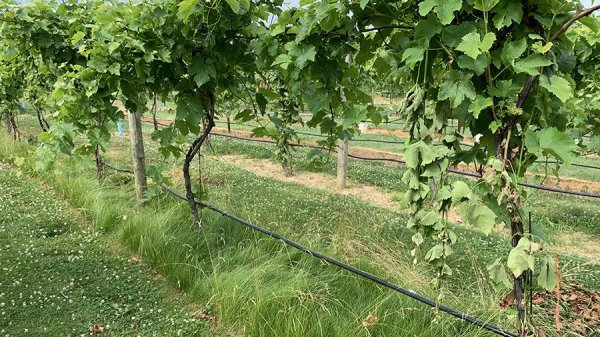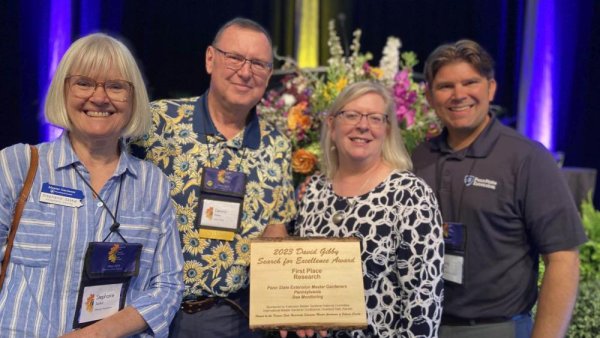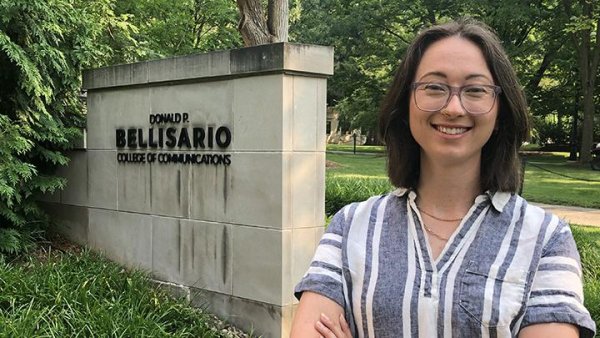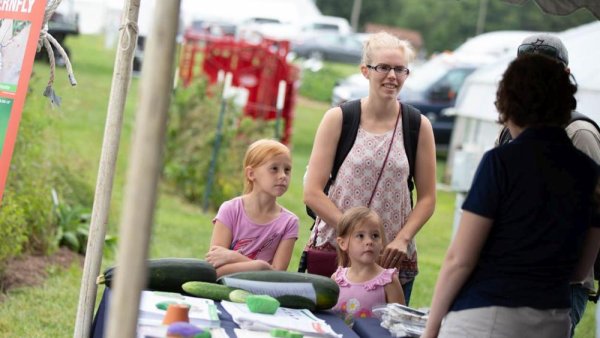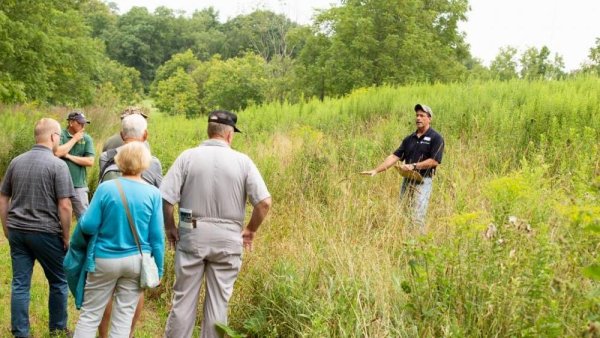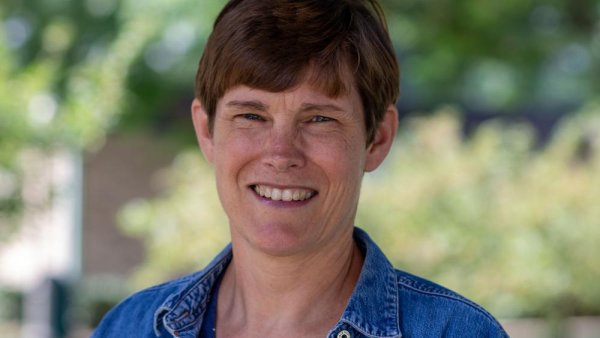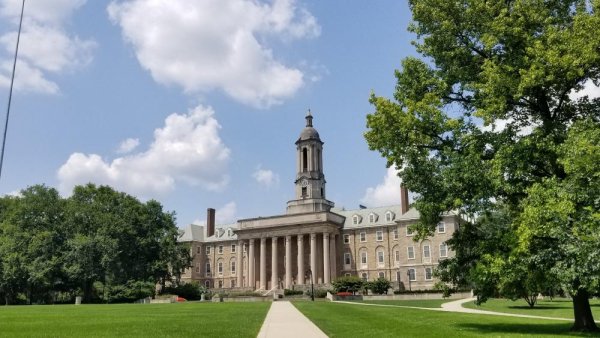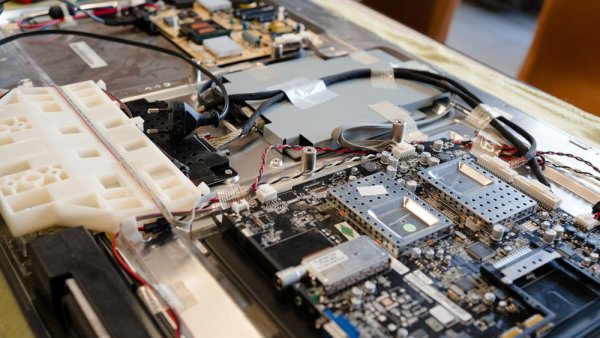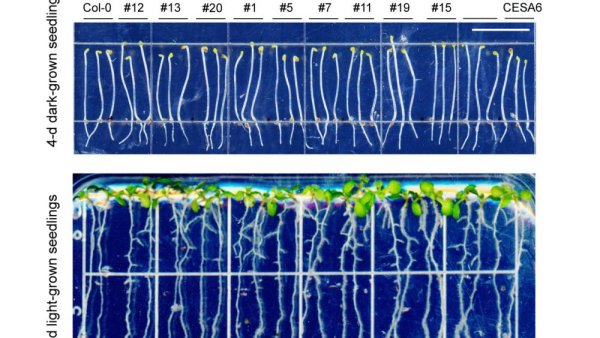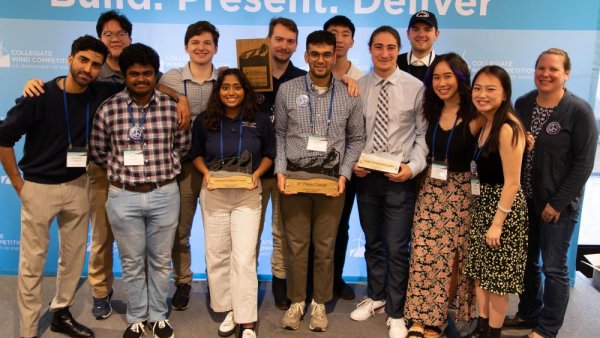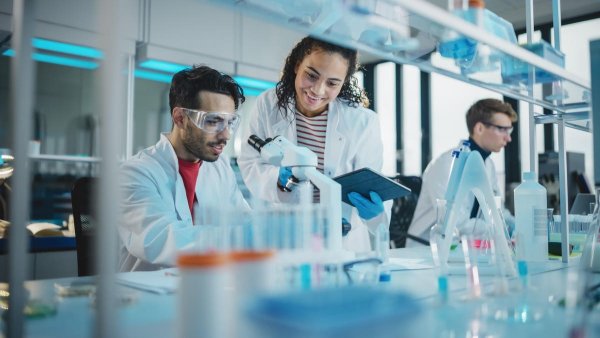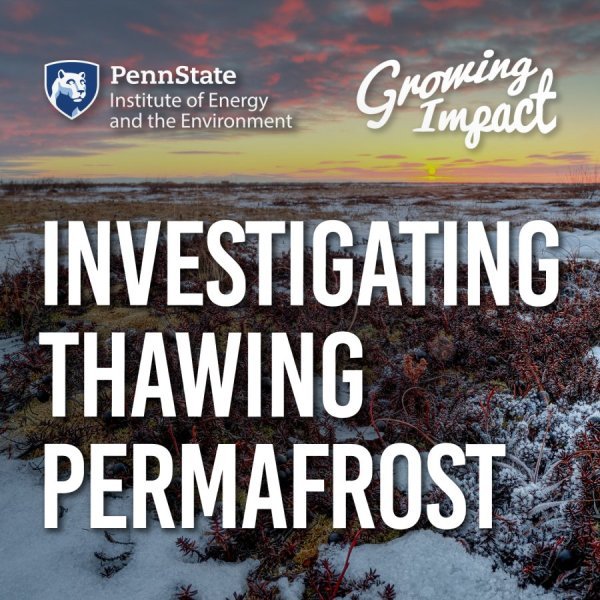Growing cover crops under vineyard vines is a sustainability strategy
| psu.edu
The perfect pairing for certain fine vines may be grasses. A new study by Penn State researchers shows that in regions with fertile soils that receive plenty of rainfall, growing cover crops under the vines so that the vineyard floor is completely covered with vegetation is a sustainability strategy.
Penn State Master Gardeners honored internationally for bee monitoring work
| psu.edu
Penn State Extension Master Gardeners triumphed at the International Master Gardener Conference held June 18-22 in Overland Park, Kansas, earning first place in the research category of the David Gibby Search for Excellence Awards for their exceptional volunteer work and dedication to bee monitoring.
Bellisario Ph.D. student earns NSF grant to study climate change communications
| psu.edu
Fourth-year Bellisario College doctoral student Cassandra Troy has received a grant from the National Science Foundation as she studies the impact of climate change communications.
Gardening expertise blooms at Ag Progress Days Yard and Garden Area
| psu.edu
Need expert gardening advice? Penn State College of Agricultural Sciences experts will offer consultations in the Yard and Garden Area during Ag Progress Days, Aug. 8-10.
Crop exhibits, renewable energy, hay contest featured at Ag Progress Days
| psu.edu
Crop management, wildlife and conservation education, as well as the signature hay show, will be offered in and around the J.D. Harrington Crops, Soils and Conservation Building during Penn State’s Ag Progress Days, Aug. 8-10.
'Green chemistry' courses at Shenango discussed at global conference
| psu.edu
Associate Teaching Professor of Chemistry Kathy Shaffer presented virtually at the "Integrating Green Chemistry into Higher Education Day" event about the integration of "green chemistry" courses into Penn State Shenango's chemistry curriculum.
Search launched for new dean of the Penn State College of Engineering
| psu.edu
Penn State has launched a national search for the next Harold and Inge Marcus Dean of the College of Engineering. Tracy Langkilde, dean of the Eberly College of Science, will chair the search committee.
Holding is believing when it comes to shopping for refurbished items, study says
| psu.edu
Whatever you call them — remanufactured, refurbished, renewed — used products ranging from electric toothbrushes to cars are one of the fastest-growing segments of the U.S. economy. New research from Penn State suggests that refurbished goods manufacturers and retailers may be stunting the market and leaving untold profits on the table by selling refurbished good online at steep discounts instead of in their brick-and-mortar stores.
Newly identified protein regulates the creation of cellulose in plant cells
| psu.edu
Cellulose — an integral component of plant cell walls — is an important source of food, paper, textiles and biofuels, but how its creation is regulated within plant cells has remained unclear. Now, a team led by researchers at Penn State has identified a protein that modifies the cellular machinery responsible for producing cellulose, which ultimately lends stability to that machinery.
Workshop fosters partnerships to position U.S. as leader in semiconductors
| psu.edu
On May 22-23, the newly formed Mid-Atlantic Semiconductor Hub, or MASH, consortium met at University Park to focus on identifying industry-academia-government partnerships that will position the U.S. for technology and workforce leadership in semiconductors and microelectronics.
Diversity, inclusivity are driving forces behind wind energy club’s success
| psu.edu
The Penn State Wind Energy Club was awarded second place at the Annual Collegiate Wind Competition, the eighth top-three showing in 10 years, a streak the team attributes to its diversity and inclusiveness.
Tandem Repeat is revolutionizing sustainable fashion with AI-designed squid proteins to reduce plastic harm
| forbes.com
Squitex technology is poised to transform the fashion industry with a sustainable, non-polluting replacement for petroleum and animal-based fibers. This article quotes Melik Demirel, Huck Chair in Biomimetic Materials and Pearce Professor of Engineering.

